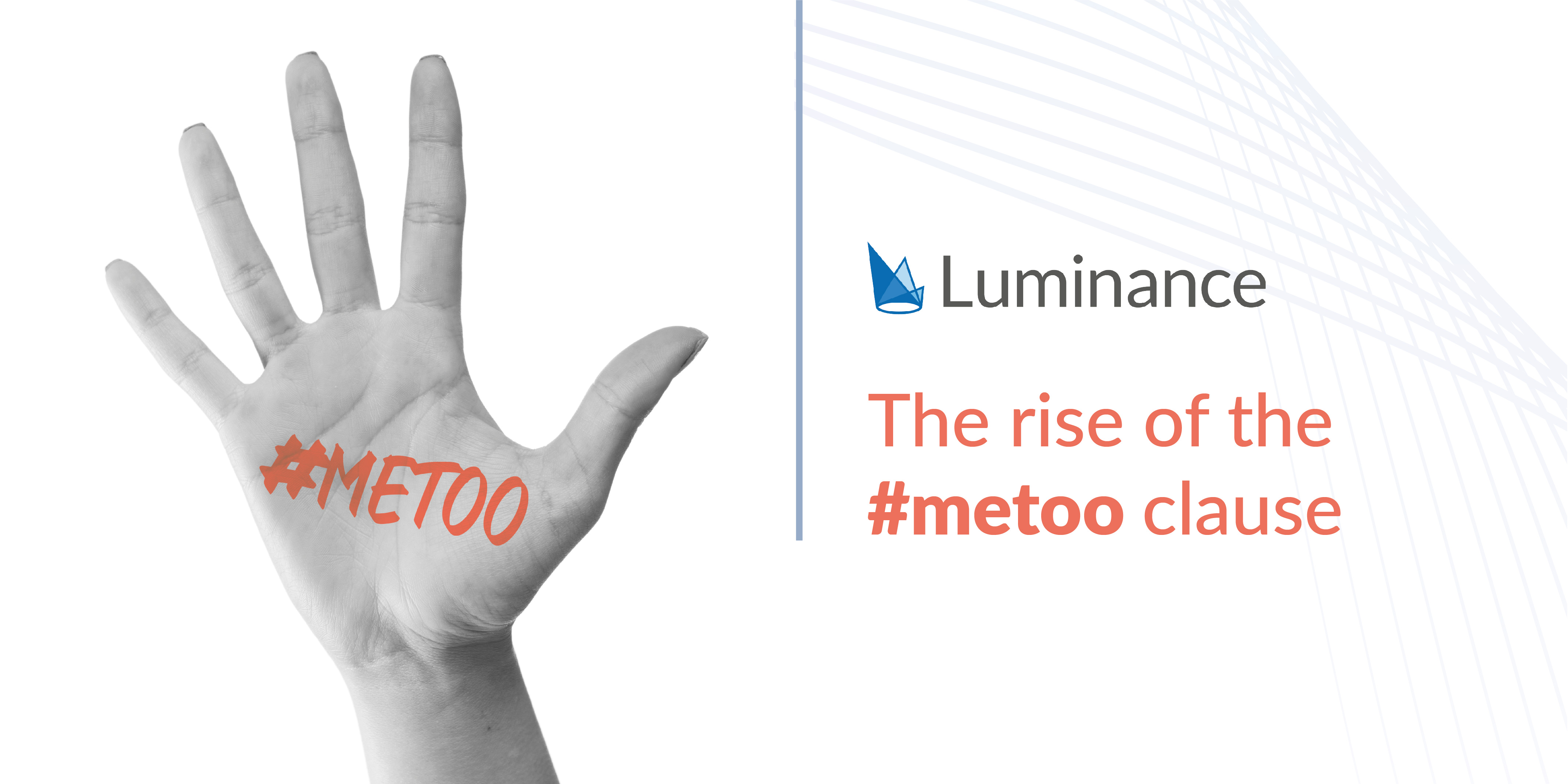
Blog
The rise of the #MeToo clause
1 November 2019 | Luminance
In October 2017, a group of women exposed to the public claims of sexual misconduct against the US film producer, Harvey Weinstein. The #MeToo movement has provided a platform for women across the world to share their stories of sexual assault and harassment in the workplace. Two years on, we are seeing the rise of ‘#MeToo clauses’, otherwise known as ‘Weinstein clauses’ or ‘MeToo reps’, in everything from merger agreements to employment contracts. These clauses make sure those who are victims of sexual discrimination, harassment and assault can no longer be silenced by those in a position of power. The emergence of #MeToo clauses signals the movement’s arrival to the corporate and legal world. Using Legal AI, advisors are able to stay on top of their review and legal change.
When conducting an M&A transaction or writing up an employee’s contract, an individual’s record of sexual misconduct is increasingly being reported to make-or-break an agreement. This typically takes the form of a representation that no sexual harassment or misconduct claims have been made against the company’s (senior) employees. As well as safeguarding companies against legal liability, this marks a cultural shift where perpetrators are starting to be held accountable for their actions. Most recently, after facing a string of very serious allegations, the tech giants Google and Uber incorporated ‘Weinstein clauses’ into their investment agreements. Advisors must therefore be attentive to these issues when carrying out legal analysis.
Of course, these types of document review are not limited to contracts - workplace policies and procedures are also being scrutinised in merger negotiations. Therefore, to assess risk, due diligence reviews may also include looking at a company’s social media, press releases, or court dockets for employment claims. This adds a new dimension to document review as advisors have to look beyond commercial documents to get the whole picture of an enterprise and its employees. Advisors need to stay relevant and adaptable to clients changing needs and points of interest. A flexible legal solution is therefore critical.
Luminance is the only technology on the market which can adapt to a changing legal world and, thanks to its machine learning capabilities, quite literally, learn on the job. Unlike older systems, which rely on clause extraction, word search or lengthy training to carry out document review, Luminance’s machine learning capabilities can immediately read and understand a large legal dataset, allowing advisors to flag potential areas of concern on day one of the review. Lawyers can be rest assured that they are doing their best to adapt to a changing and progressive legal climate.
To truly comprehend #MeToo clauses and a company’s profile, a variety of datasets need to be looked at. With Luminance, advisors are provided with a very visual, instant insight into a huge volume of documents, which not only saves legal teams a considerable amount of time, but also allows them to get to the heart of the matter and the review. As a result, advisors are instilled with the utmost confidence that they will not miss any critical information which may implicate a business or employee when conducting their review.
Workplace harassment and abuse should no longer find a place to hide. With the advent of #MeToo clauses, it is expected that other forms of discrimination, such as disability, racial and religious oppression will be recognised in the same way. Legal services must adapt to this and provide the best possible advice for their clients. Legal AI enables advisors to stay on top of their review and navigate these critical yet sensitive issues.